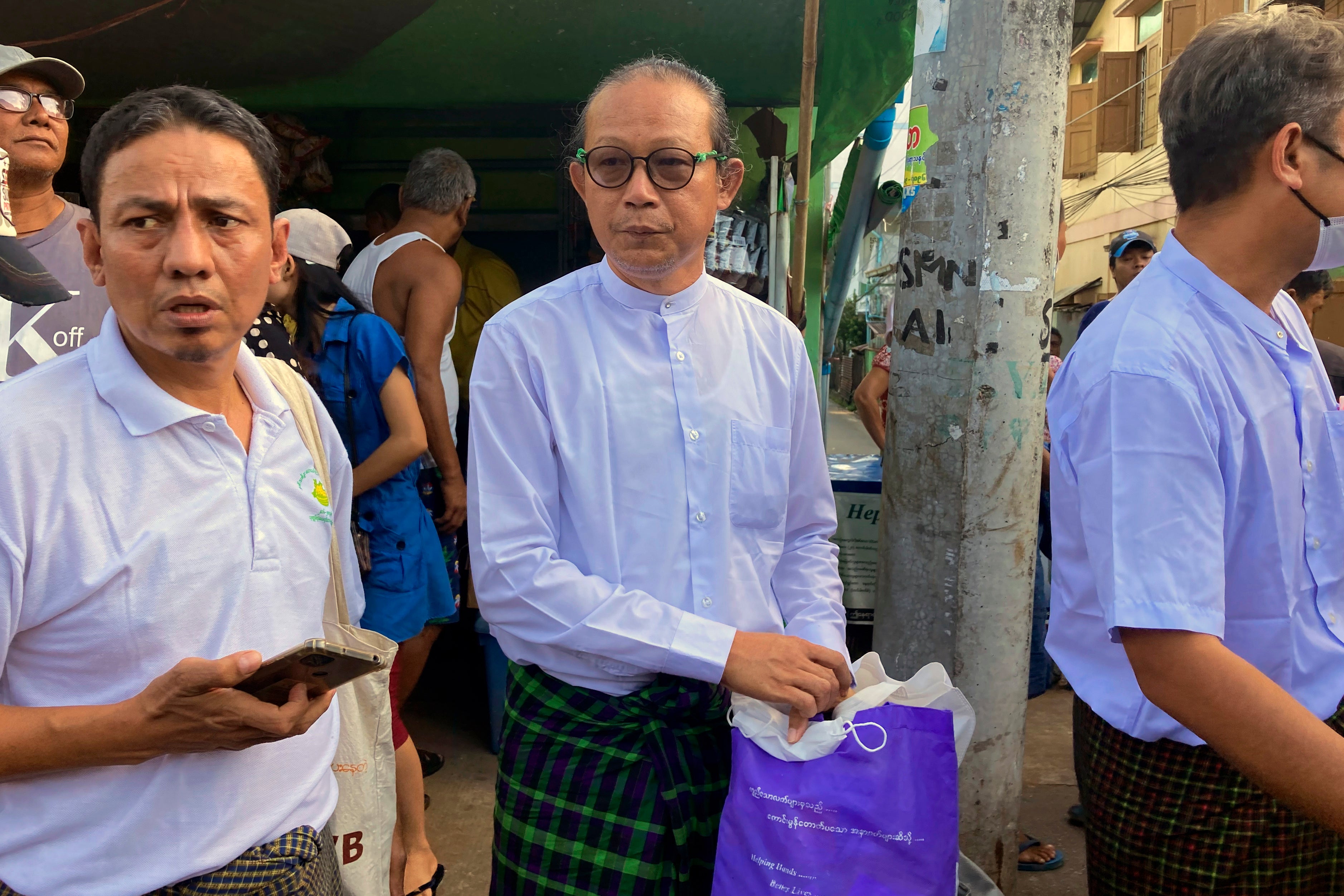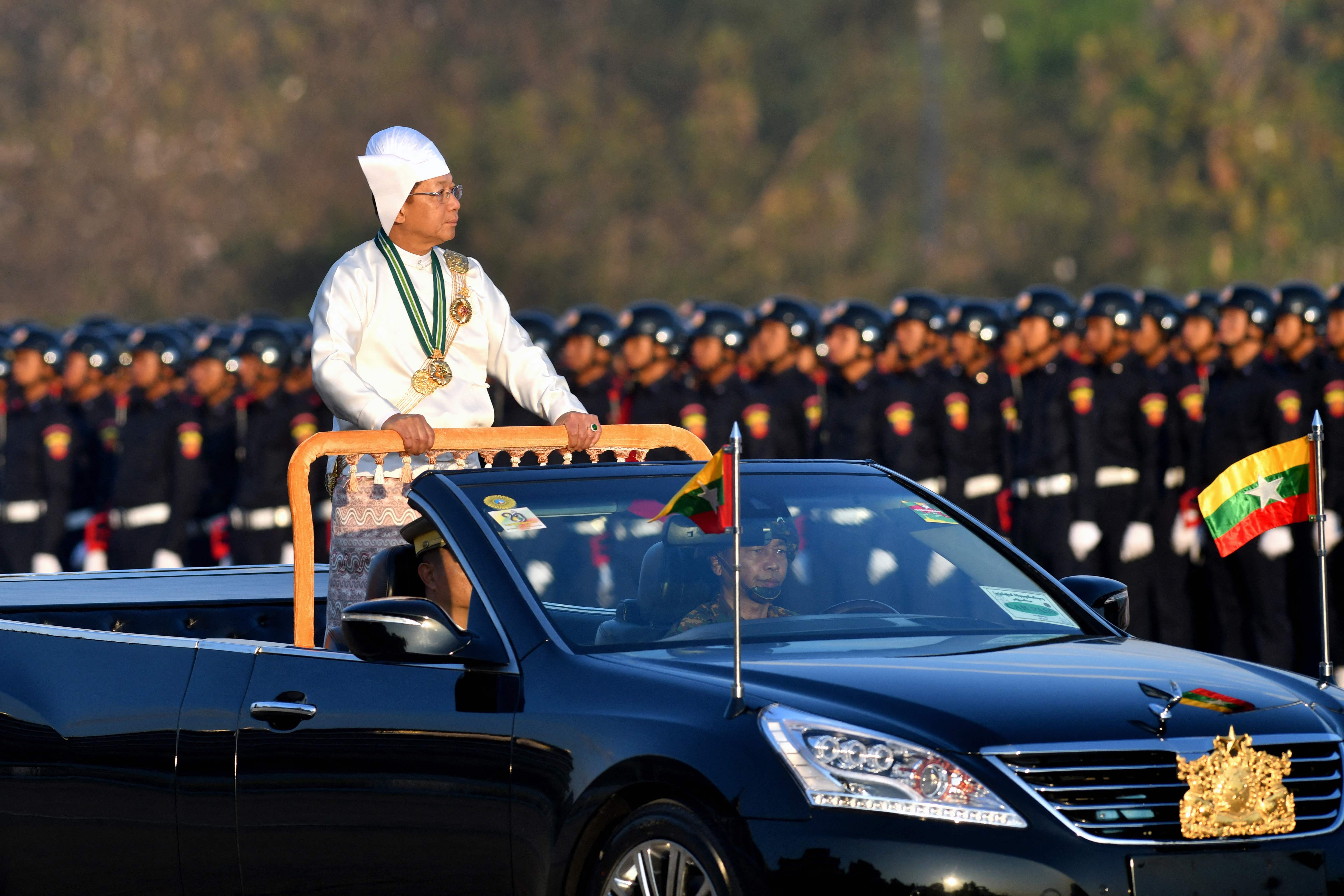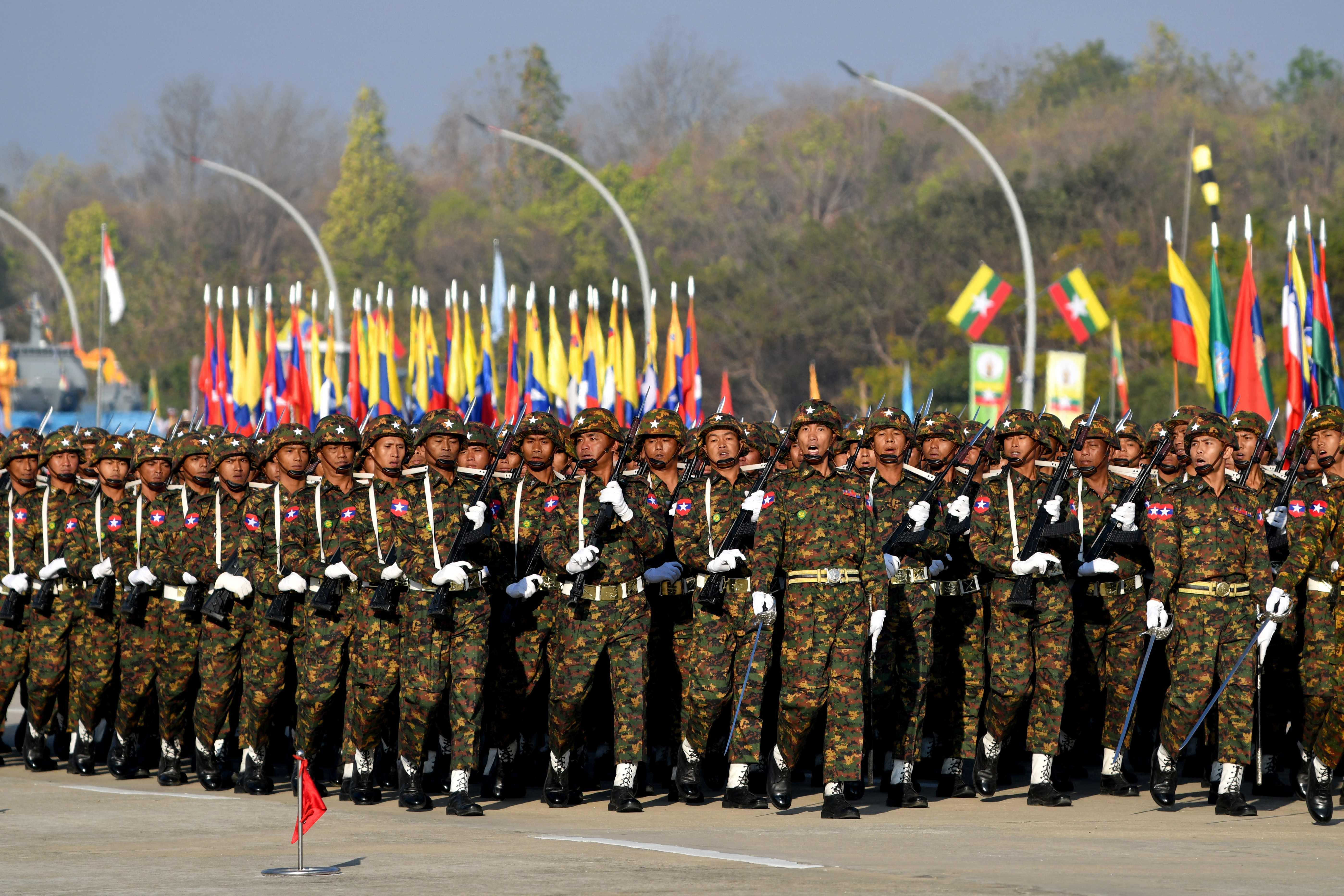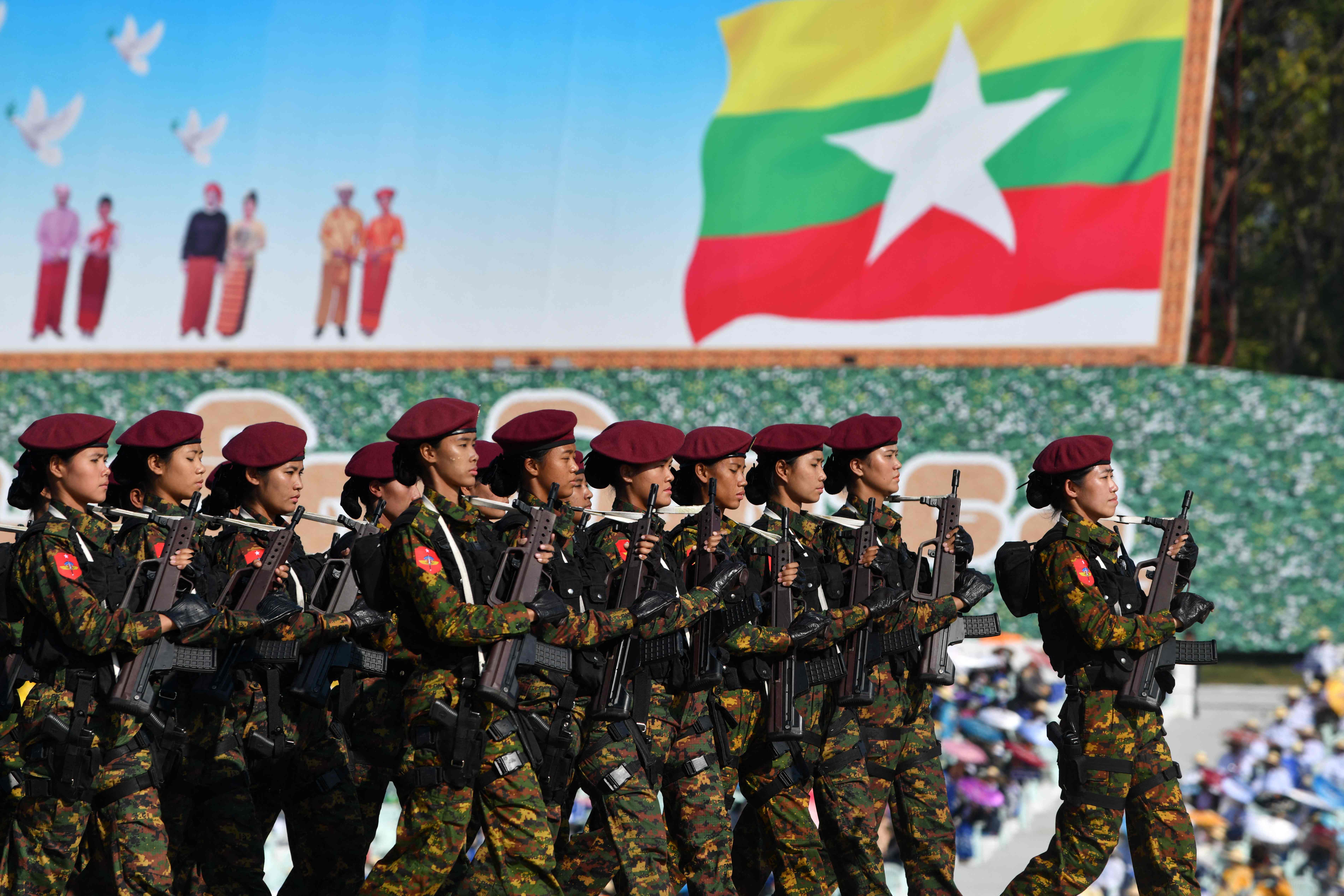Myanmar to free 7000 prisoners on foundation day under amnesty
‘We are closely working with neighbouring countries such as China, India, Thailand, Laos and Bangladesh’

Myanmar's military has released 7,012 prisoners under an amnesty to mark the country's 75th independence day, as the junta chief praised some countries for supporting the nation.
The Southeast Asian country has been in the middle of a bloody conflict since the military wrested power from the elected Aung San Suu Kyi’s civilian government in February 2021.
Since then, the country has been ruled by general Min Aung Hlaing, who is the commander-in-chief of the Tatmadaw, or military.
Ousted National League for Democracy (NLD) government’s minister Thura U Aung Ko, philanthropist and writer Daw Than Myint Aung and former government information officer U Htin Lin Oo, and some journalists, were among those released by the junta.
Mr Aung Ko, 75, was reportedly released from Yangon’s Insein prison on Tuesday night. He was arrested after the coup on corruption charges and sentenced to 12 years in prison with labour in March 2021.
General Hlaing on Wednesday led a ceremony marking the 75th anniversary of independence from Britain where he thanked neighbouring countries and slammed the critics.
"I want to say thank you to some international and regional countries and organisations and individuals who positively cooperated with us... in the midst of all the pressure, criticisms and attacks," he said at a parade in the capital Naypyidaw.
He added: "We are closely working with neighbouring countries such as China, India, Thailand, Laos and Bangladesh. We will work together for border stability and development."

The junta chief urged nations to support Myanmar's "genuine, discipline-flourishing multiparty democratic system", a concept the ruling military has defined as its goal.
General Hlaing shared his plans to hold elections later this year, which could start taking shape at the end of January, when the latest six-month extension of a state of emergency is completed. The state of emergency was imposed to allow military rule after it seized power two years back.
"Upon accomplishing the provisions of the state of emergency, free and fair elections will be held in line with the 2008 constitution, and further work will be undertaken to hand over state duties to the winning party in accordance with the democratic standards," he declared.

Even as armed conflict rages across the country, General Hlaing stressed that the cessation of ongoing strife is necessary to ensure national solidarity and peace.
Slamming the Western powers that have imposed multiple sanctions against the junta, the general added: "It is seen that some organisations and countries had meddled in the internal affairs of Myanmar.

"However, we have decided to stand firm globally, while adhering to our foreign policy in order to safeguard the sovereignty, security and interests of our nation."
General Hlaing’s nearly two-year rule has been marked with allegations of blatant human rights abuse and killings of political dissidents.
Last week, a primary school teacher was sentenced to death by a military-controlled court for his alleged role in the killing of a suspected junta informant. Kaung Khant Kyaw, 25, was sentenced after being found guilty of murder and terrorism.

The military killed at least eight people and captured more than 20 civilians last week in a raid on Ah Lel Sho village in Khin-U Township, Sagaing Region, Myanmar Now reported.
The villagers failed to escape when around 50 soldiers stormed the village at dawn on 28 December.
“We were all still asleep when the military came and we ran in a panic when they started firing their guns. They chased us for some distance but all of our troops managed to escape,” said a member of a local defence team.
According to statistics by the country’s exiled opposition National Unity Government (NUG), the military has killed 165 children from gunfire artillery, airstrikes, drone attacks and land mines.
Most attacks were recorded in the resistance stronghold region of Sagaing followed by the Rakhine and Kayah states, where the military frequently clashes with ethnic armed forces.
In June, UN Special Rapporteur Thomas Andrews said around 382 children were either killed or maimed, while more than 1,400 were arbitrarily arrested and 142 tortured since the coup.
Rights group Assistance Association for Political Prisoners (AAPP) said a total 2,662 people were killed and more than 16,000 were arrested by the military since the coup, as of December 2022.






Join our commenting forum
Join thought-provoking conversations, follow other Independent readers and see their replies
Comments